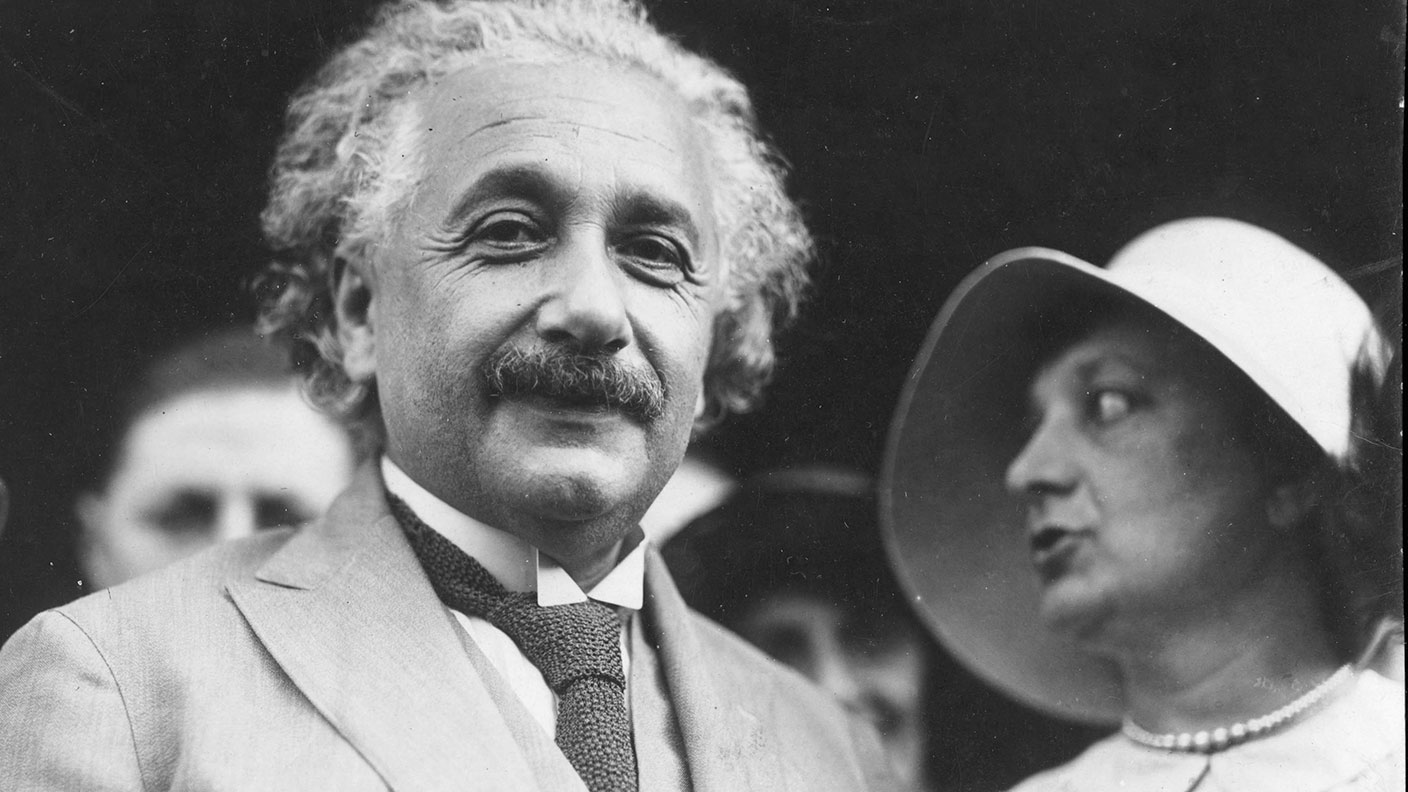11 November 1930: Einstein receives a patent for his fridge
On this day in 1930, Albert Einstein and Leó Szilárd were awarded a patent for their revolutionary 'Einstein refrigerator'.


Get the latest financial news, insights and expert analysis from our award-winning MoneyWeek team, to help you understand what really matters when it comes to your finances.
You are now subscribed
Your newsletter sign-up was successful
Want to add more newsletters?

Twice daily
MoneyWeek
Get the latest financial news, insights and expert analysis from our award-winning MoneyWeek team, to help you understand what really matters when it comes to your finances.

Four times a week
Look After My Bills
Sign up to our free money-saving newsletter, filled with the latest news and expert advice to help you find the best tips and deals for managing your bills. Start saving today!
Albert Einstein is perhaps best-known for his theory of relativity. But he and his former student, the Hungarian physicist Leo Szilard, also came up with a design for a fridge – the so-called Einstein refrigerator – for which they were awarded patent number US1781541 A on 11 November 1930.
Sadly, their fridge never really got going. But, over 80 years after its invention, the Einstein fridge may yet play an important role in helping to save the planet.
The problem with the Einstein fridge was that it was inefficient. That left the door open for horrible modern fridges in the 1950s, which require man-made gases that can play havoc with our atmosphere.
MoneyWeek
Subscribe to MoneyWeek today and get your first six magazine issues absolutely FREE

Sign up to Money Morning
Don't miss the latest investment and personal finances news, market analysis, plus money-saving tips with our free twice-daily newsletter
Don't miss the latest investment and personal finances news, market analysis, plus money-saving tips with our free twice-daily newsletter
But the Einstein fridge had plenty going for it. It comprised just four components, none of which included moving parts. That meant it required less maintenance. It also didn't require electricity, just a heat source. And it was clean.
It worked on the principle that liquids boil at lower temperatures in areas of low pressure. Ammonia vapour was used to lower the pressure of a chamber containing butane. As the butane boiled off, it took energy with it and made the fridge cold.
In the last few years, Einstein and Szilard's design has been revisited. A team from Oxford University claimed to have quadrupled the efficiency of the Einstein fridge by playing around with different types of gases. And it's not before time.
As living standards have steadily risen in poorer parts of the world, sales of polluting fridges have soared. But it's hoped the Einstein fridge might yet do away with ozone-depleting fridges, particularly where a reliable power supply might be missing. The Oxford team, for example, used solar power.
So, who knows, it may not be too long before you have an Einstein fridge in your kitchen.
Get the latest financial news, insights and expert analysis from our award-winning MoneyWeek team, to help you understand what really matters when it comes to your finances.

-
 Should you buy an active ETF?
Should you buy an active ETF?ETFs are often mischaracterised as passive products, but they can be a convenient way to add active management to your portfolio
-
 Power up your pension before 5 April – easy ways to save before the tax year end
Power up your pension before 5 April – easy ways to save before the tax year endWith the end of the tax year looming, pension savers currently have a window to review and maximise what’s going into their retirement funds – we look at how
-
 31 August 1957: the Federation of Malaya declares independence from the UK
31 August 1957: the Federation of Malaya declares independence from the UKFeatures On this day in 1957, after ten years of preparation, the Federation of Malaya became an independent nation.
-
 13 April 1960: the first satellite navigation system is launched
13 April 1960: the first satellite navigation system is launchedFeatures On this day in 1960, Nasa sent the Transit 1B satellite into orbit to provide positioning for the US Navy’s fleet of Polaris ballistic missile submarines.
-
 9 April 1838: National Gallery opens in Trafalgar Square
9 April 1838: National Gallery opens in Trafalgar SquareFeatures On this day in 1838, William Wilkins’ new National Gallery building in Trafalgar Square opened to the public.
-
3 March 1962: British Antarctic Territory is created
Features On this day in 1962, Britain formed the British Antarctic Territory administered from the Falkland Islands.
-
10 March 2000: the dotcom bubble peaks
Features Tech mania fanned by the dawning of the internet age inflated the dotcom bubble to maximum extent, on this day in 2000.
-
9 March 1776: Adam Smith publishes 'The Wealth of Nations'
Features On this day in 1776, Adam Smith, the “father of modern economics”, published his hugely influential book The Wealth of Nations.
-
 8 March 1817: the New York Stock Exchange is formed
8 March 1817: the New York Stock Exchange is formedFeatures On this day in 1817, a group of brokers moved out of a New York coffee house to form what would become the biggest stock exchange in the world.
-
7 March 1969: Queen Elizabeth II officially opens the Victoria Line
Features On this day in 1969, Queen Elizabeth II took only her second trip on the tube to officially open the underground’s newest line – the Victoria Line.